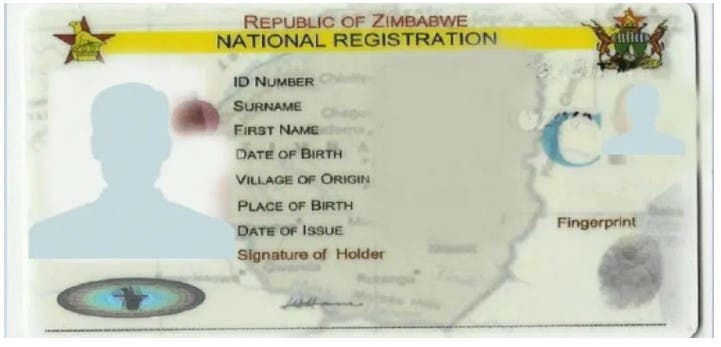The Parliamentary Portfolio Committee on Defence, Home Affairs and Security Services has recommended to the government to re-code National Identity Documents (IDs) for the mixed-race community on the basis of the district of registration as opposed to the conventional district of origin concept.
This was in response to a petition from the Sunningdale 1 Residents Association (S1RA) who were aggrieved by the continued alienation and marginalisation of the mixed-race community in Zimbabwe, mainly as a consequence of the double zero (00) identity classification on their national registration certificates.
There has been an outcry from the mixed-race community for recognition in terms of nationality and citizenship status.
Presenting the report, the chairperson of the committee, Brig. Gen (Rtd) Levi Mayihlome said the mixed-race community argued that the double zero classification on their identity cards was responsible for their undeserved suffering as evidenced by their continued alienation and marginalisation.
“The community challenged the irregularities existing in some local pieces of legislation which they blamed for perpetuating the colonial evils of discrimination and violating the freedoms and rights of various individuals among the coloured race in Zimbabwe. In particular, the double zero (00) classification on the identity cards of those born to mixed-race parents was seen as a devious colonial system designed to segregate people on the basis of their colour and race,” said Gen (Rtd) Mayihlome.
He said the community had also appealed to Parliament for the Minister of Home Affairs and Cultural Heritage to draw up robust customer service policies and procedures on the code of conduct of employees at the Registrar General’s office.
“They asserted that the code of conduct should be the binding norm by which all employees at the Registrar General’s office would conduct themselves in their individual and professional capacity as they relate with each other across the system and with their clients. This call was made following several grievances by individuals from the Coloured Community who were complaining of being subjected to inhumane treatment at the Registrar General’s offices,” he said.
The association categorically implored the Ministry of Home Affairs and Cultural Heritage to devise and implement a modernised integrated registration system which would allow citizens to access services from any part of the country without unnecessarily incurring travel expenses.
In addition, Gen (Rtd) Mayihlome added that the community expressed concern over the side-lining of their members from the Government’s land acquisition and redistribution reform programme despite their desire and expectation to be allocated land.
“They blamed the double zero classification code for apparently depriving them of their nationality and consequently affecting their citizenship status. They noted that eligibility for land allocation was premised upon registration with one’s village headman; a situation which furthered their exclusion since they did not have villages of origin. They argued that the same predicament was common in various other national empowerment programmes,” he said.
“They also pointed out that the double zero classification was responsible for excluding the Coloured Community from employment in the Civil Service even though the affected individuals were willing to serve the country and contribute to its development and prosperity.”
Meanwhile, in response to some of the grievances, Gen (Rtd) Mayihlome said the ministry resolved that for previously registered individuals, those who had not yet obtained identity documents and children issued with manually generated birth certificates, the district of registration would determine their district of origin.
“The District of Origin for newly born babies applying for computerised birth certificates would be derived from the District of Birth,” he said.

